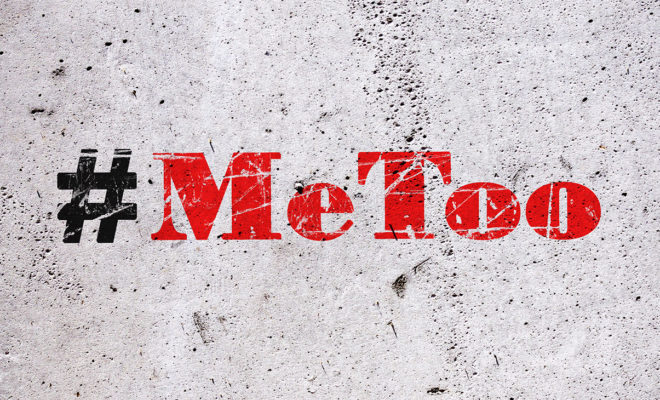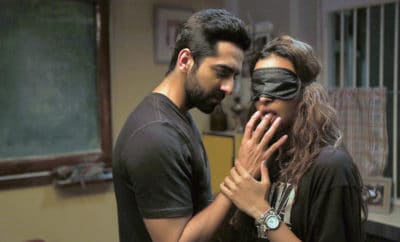Crime
India Isn’t Doing Enough To Fight Sexual Assault

It was too good to be true.
That was the reaction of so many of us Indian women as we watched the nation’s (hash)MeToo movement getting traction last year – and apparently, we were right. For all of the progress made in the past few months in discussing sexual harassment, the underlying culture that blames survivors and protects abusive men remains intact.
This week, famed director Rajkumar Hirani – who directed “3 Idiots,” one of the most successful Hindi films of all time – was accused of sexual assault by a woman who worked with him on his latest film. The accuser, who has remained anonymous, says Hirani sexually abused her on multiple occasions between March and September 2018, according to Huffington Post India. Vinod Chopra Films, which produced the movie, set up an investigative committee and vowed to look into the complaint. (Hirani denied the allegations, calling them “false, malicious and mischievous.”)
Hirani is just the latest name in a long list of Bollywood celebrities accused of harassment or assault. India’s (hash)MeToo movement began when actress Tanushree Dutta accused former co-star Nana Patekar of sexual harassment on a film set in 2008. Her testimony sparked a moment of reckoning in the Indian entertainment industry – as more and more women came forward with accounts of abuse, the movement brought down a number of well-known writers, actors and directors and led to the dissolving of an acclaimed production company. It seemed that women were finally being heard, and that the industry and the country were finally ready to take accusations seriously.
But the general reaction to the accusations against Hirani reflects the same pervasive attitudes that have existed for decades. Instead of voicing concern and calling for an investigation to uncover the truth, many stars have come out to express unconditional support for Hirani.
Arshad Warsi, an actor who worked with Hirani on multiple movies, told the Indo-Asian News Service that Hirani was a “fabulous gentleman” and “lovely guy” and that he had “never seen one wrong thing about him.” Producer Boney Kapoor said Hirani was “too good a man to do something like this,” and Sharman Joshi tweeted, “I stand for Raju Hirani.”
Almost as frustrating as these tone-deaf comments is the silence from the rest of Bollywood – even from self-proclaimed feminists and (hash)MeToo allies. These people were ready to turn their backs on other men who were less successful and less revered. But when faced with the possibility that a respected Bollywood icon could be responsible, they prefer to look the other way.
The episode reveals a chilling reality: Despite hopes that the (hash)MeToo movement has revolutionized India, there is still a lot of work to be done challenging the culture of indifference and impunity that shields powerful men. And if this is true in Bollywood, an industry that was supposed to have already had its (hash)MeToo reckoning, what chance do Indian women in other fields have?
Although (hash)MeToo’s impact on the Indian media and entertainment industries has been significant, it has had less of an effect on other industries. And because the movement has been focused on the experiences of urban, educated professionals on social media, far too many women – particularly low-income and rural women, who are among the most vulnerable to sexual violence – have been left out of the conversation and are not even aware of a cultural shift.
But even for the Indian women who have been emboldened by the movement, justice is a rare victory. Indian organizations are still not equipped to effectively deal with accusations of sexual harassment and assault. In Hirani’s case, the production house he worked with appears to have skirted the law that requires all workplaces with 10 or more employees to have internal complaints committees that deal with reports of harassment. This trend of ignoring such laws is far too common, and even organizations that do have committees in place limit participation by junior staffers, giving most of the oversight responsibility to managers who have an incentive to cover up misconduct. The system undermines the investigative process and discourages women from coming forward.
And then there are the country’s woefully outdated policies and legal codes, which are in desperate need of reform. Under current Indian law, marital rape is still not classified as a crime. The country’s defamation law, which treats the act as a criminal as well as a civil offense, allows abuse suspects to file retaliatory complaints against their accusers, leading to court cases that can last years. The country still lacks enough fast-track courts and resources for survivors, even though half of the Nirbhaya Fund to fight sexual violence lies unused. Reform in these areas would support women who come forward and send a clear signal that sexual misconduct will no longer be ignored.
Yet none of these changes will be transformative if Indian women are silenced and belittled when they speak out. And if the allegations against Hirani aren’t taken seriously and thoroughly investigated, this is exactly the impression that will be reinforced.
(c) 2019, The Washington Post



